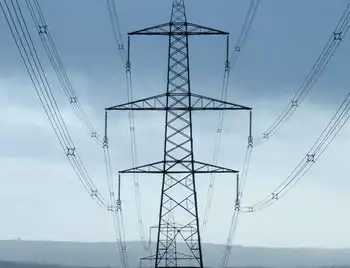European solar market facing tough times
GERMANY - The reduction in government incentives and feed-in tariffs FiTs for solar photovoltaic PV projects will significantly hit the solar sectors in some of Europe's largest markets in 2011 and beyond.
Germany, the largest solar market in the world, will be hit the hardest according to the European Photovoltaic Industry Association EPIA. Speaking exclusively to Industrial Info Europe, Marie Latour, national policy advisor for EPIA, said: "We are expecting the reduction of the support scheme in Germany to have an impact mainly from the second half of this year, depending on how much the FiT will be reduced in July this year. This reduction could be up to 15 already. We expect the German market to stagnate in 2011, reducing by 1-2-gigawatts GW maximum from 2010 levels.
"For Spain, the market is not expected to be lower than what it was in 2009 and 2010," she added. "It is progressively recovering from the strong cut and change of rules to allocate the FiT reviewed at the end of 2008. However, administrative constraints should be removed for the market to actually go back on track this year and next."
The comments come just days after the EPIA released figures showing that 2010 was a record year for solar photovoltaic power in Europe, with almost 13,000 megawatts MW of new installations.
Last year, numerous leading European solar players announced cuts in their FiTs for solar to control their booming sectors. In January 2010, Germany's environmental minister proposed a 15 cut in feed-in tariffs for the solar power industry. Just recently, Germany's government voted for the cut to come into effect from this summer — six months earlier than originally thought. France has already introduced a 24 cut in solar feed-in tariffs for rooftop systems.
The UK government recently launched a review of its own incentives for solar power projects, which has caused concern for many solar players.
"The UK has had an encouraging FiT system in place since April 2010, which has triggered a lot of interest and expectations," Latour told Industrial Info Europe. "In only eight months, the FiT has allowed the development of a 40-MW solar market. Many projects are being planned. The FiT scheme was not originally foreseen to be reviewed earlier than April 2012, but in February, Chris Huhne, the UK Secretary of State for Energy and Climate Change, announced the review would start in April 2011, one year ahead of schedule. The reason for reviewing the FiT early stems from fears that it could benefit mainly large investors, with not enough going to domestic and community-based installations.
"Their risk is that it may paralyse market development and discourage investors," she concluded.
Related News

Ukraine Prepares for Winter Amid Energy Challenges
KYIV - As winter approaches, Ukraine is bracing for a challenging season, especially in the energy sector, which has been heavily impacted by the ongoing conflict with Russia. With the weather forecast predicting colder temperatures, the Ukrainian government is ramping up efforts to secure energy supplies and bolster infrastructure, aiming to ensure that citizens have access to heating and electricity during the harsh months ahead.
The Energy Landscape in Ukraine
The conflict has severely disrupted Ukraine’s energy infrastructure, leading to widespread damage and inefficiencies. Key facilities, including power plants and transmission lines, have been targeted, resulting in significant energy shortages.…




